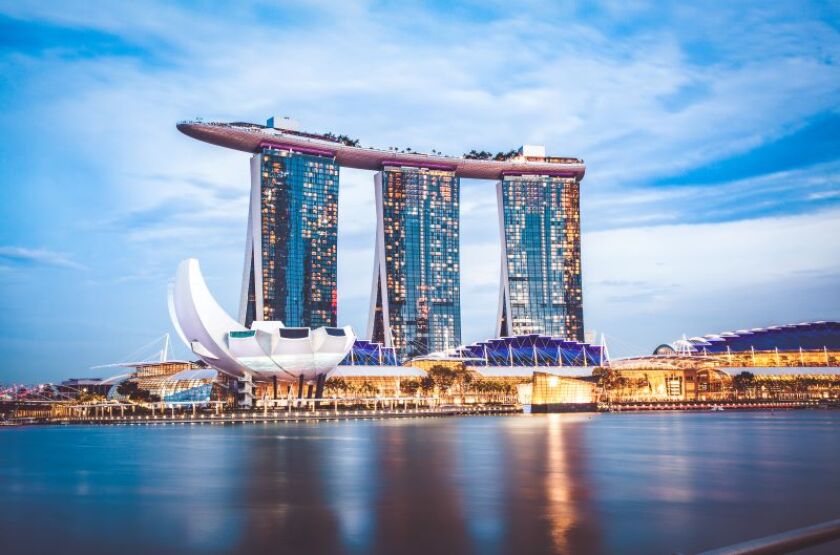As Europe slowly chips away at London’s financial crown, most recently with Amsterdam overtaking the city as Europe’s largest share trading hub, the prospect of a Singapore-on-Thames model has been widely debated. The concept, however, is nothing but fantasy.
The idea was first floated in 2017 by then chancellor Philip Hammond. The model would bring about a low tax, light regulation, open for business economy that would rival the European Union’s heavily regulated financial sectors.
A move towards this kind of model would significantly diverge the UK economy from its immediate neighbours.
See also: Europe’s coming restructuring boom
Markus Ferber, MEP, informed Boris Johnson that turning the Square Mile into a ‘Singapore-on-Thames’ would leave the EU no choice but to declare the UK non-compliant to key rules pertaining to its financial markets.
The price of London striking out on its own means greater difficulty for UK-based firms to serve clients in the EU and potentially more migration out of London.
Top city bosses are split; some have rejected the model whilst others would prefer the UK be a ‘rule taker’ to the European Union.
A flawed model
However, the very analogy of ‘Singapore-on-Thames’ itself is flawed. Those familiar with Singapore are aware that the island nation’s economy is far from deregulated.
In 2019, Sir Martin Sorrell, a prominent British businessperson, stated that Britain should be “Singapore on steroids” with a regulation-light, tax-light UK economy, open for business in ways not seen before.
“The UK should be the home of Amazon, Google and Facebook, not the regulatory nightmare,” he said.
However, the idea that Singapore’s success is built upon this model of low taxes and light regulation is detached from reality. While the city state’s economy is enviable, its success has been predicated on being the trading hub of Asia, not a deregulated economy.
See also: Bank of England faces tricky Brexit quandary
In contrast, Brexit threatens London’s role as a trading hub, disrupting supply chains and the ease of doing cross-border business.
The reality is that Singapore is not the laissez-faire economy Britain may believe it to be. The state remains a major shareholder in key domestic industries from banking to telecommunications to electricity.
In fact, Singapore is often mocked by the rest of Asia for being a ‘nanny state’, a term in which the late Lee Kuan Yew, the state’s former long-serving leader, took pride. Regulations pervade all walks of life from rules on chewing gum, littering, jaywalking, car ownership and even family planning.
Furthermore, strict rules are in place to protect consumers of financial institutions. For example, financial institutions are prohibited from recommending a customer to switch from investing in a financial product or insurance policy that may be detrimental to them.
Open for business
One aspect where Britain may succeed in following the Singapore model is the city state’s open immigration policy and low tax. Their open-door policy has attracted entrepreneurs and top talent, which in turn helped propel the economy forward.
However, the Trade and Cooperation agreement with the EU keeps Britain’s tax policies in check. While the UK is free to compete on tax rates, many tax avoidance and anti-money laundering restrictions ensure that both sides have competitive tariffs.
See also: Singapore will need to weight the pros and cons of SPACs
Furthermore, the chancellor’s announcement of a raise in corporation tax in the March budget pushed the UK even further away from the Singapore on Thames model.
In essence, if Britain wants to succeed with a Singapore-on-Thames model, it must significantly rethink and reshape the true realities of the proposal. Britain has a lot to learn from its former colony but only if it studies the model for what it truly is – and not the fantasy it thinks it is.

